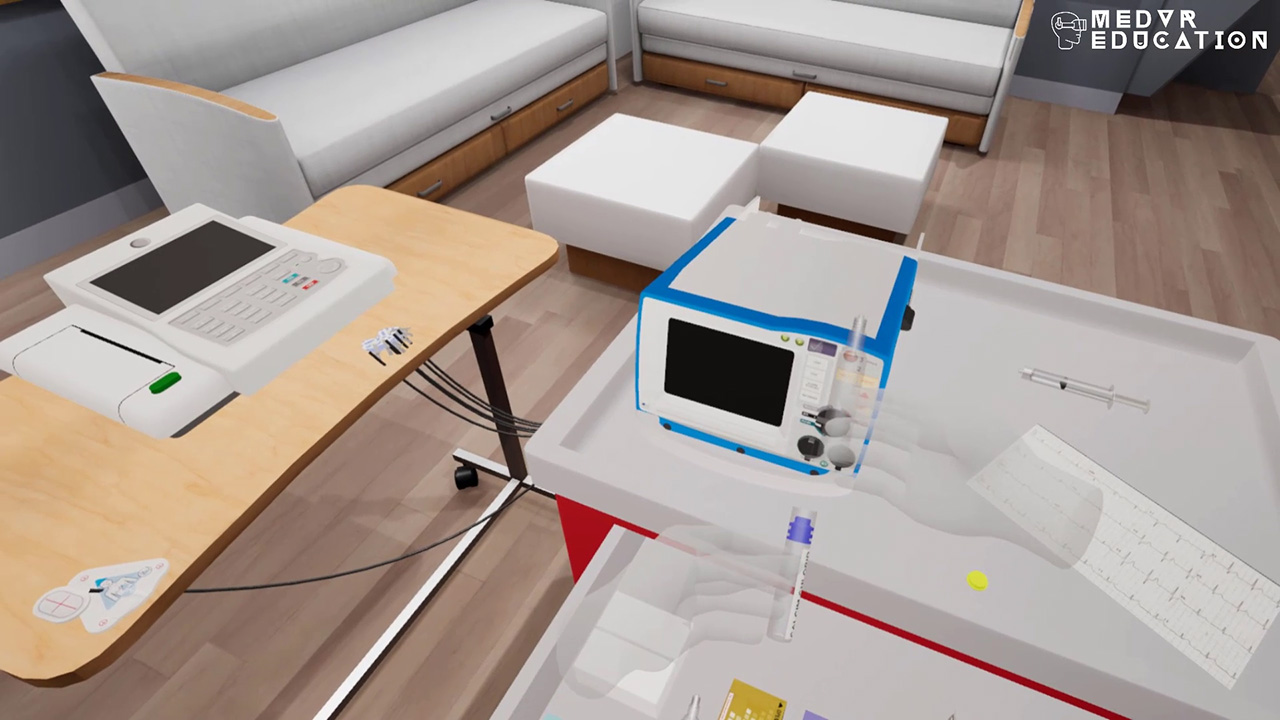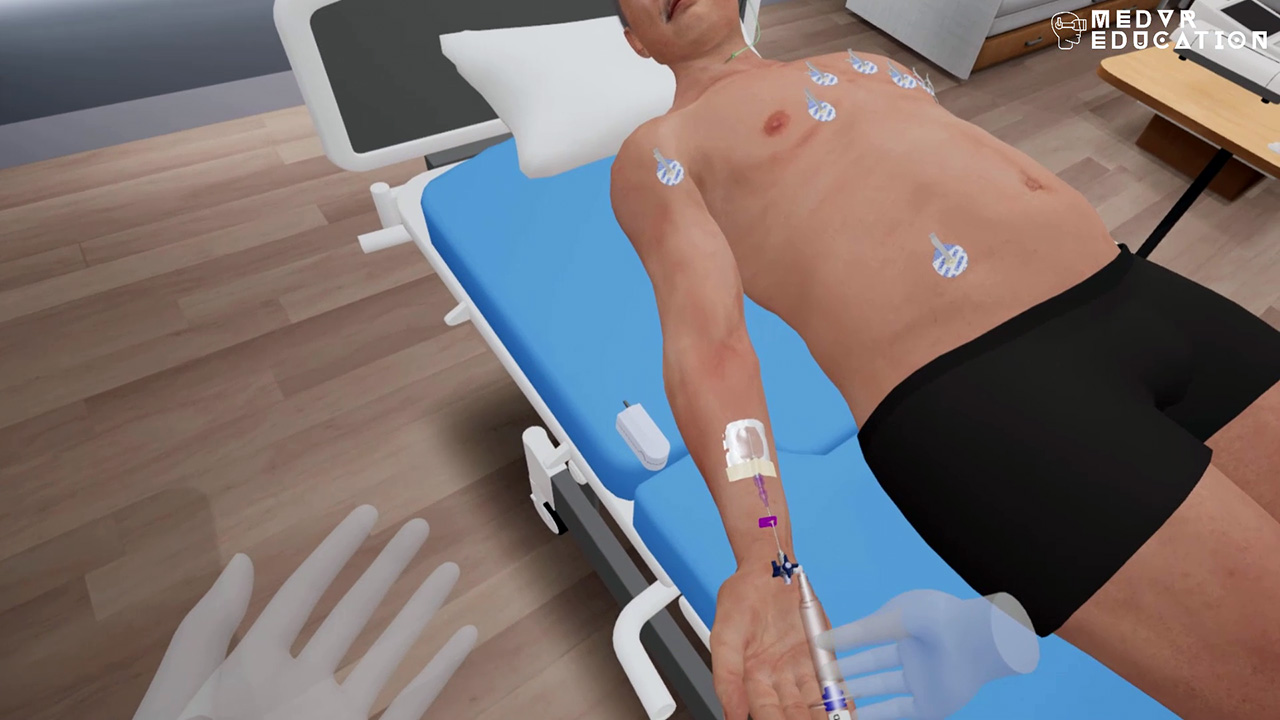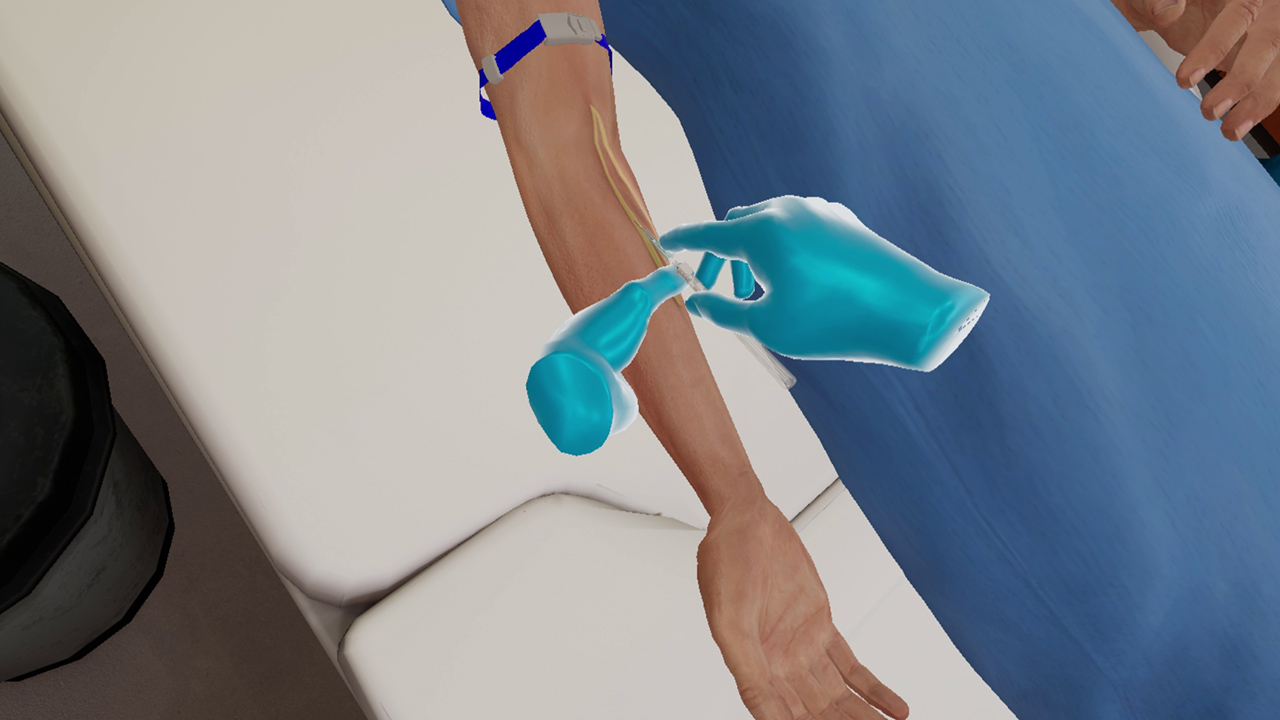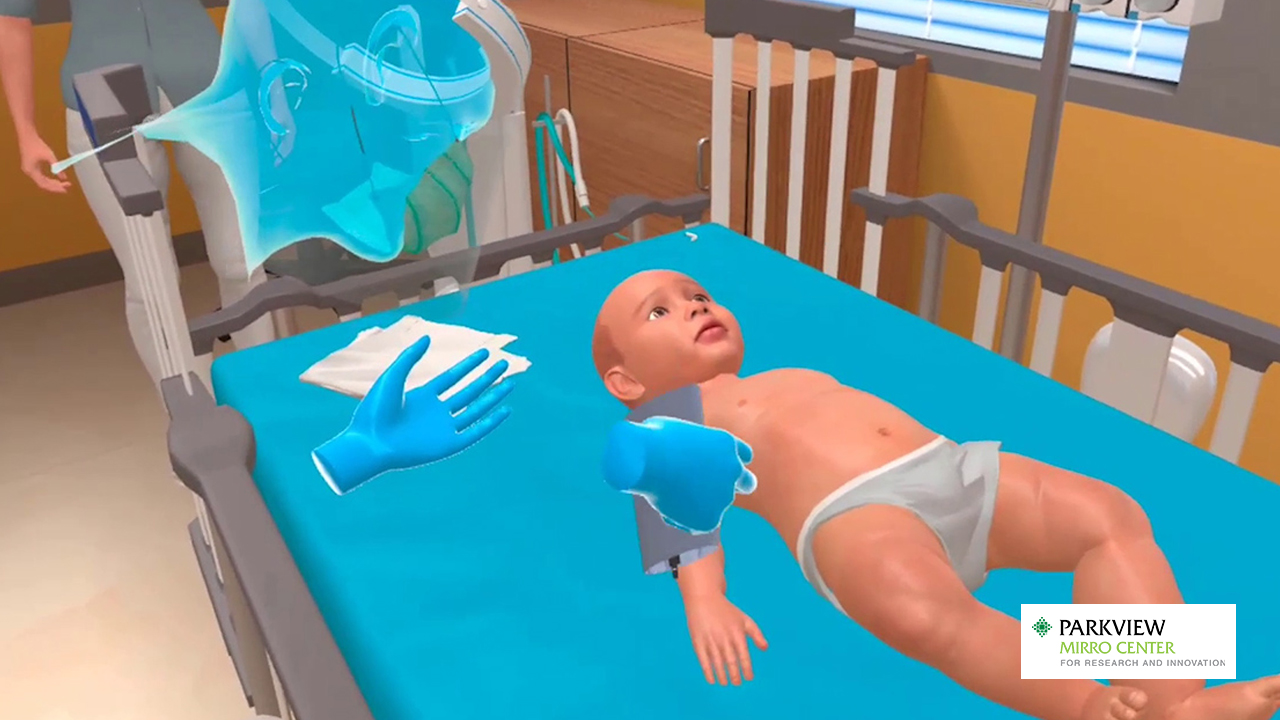
‘The stage is all yours and you are in charge. Make choices and moves as you consider appropriate. In the end you will get a debriefing of your performance.’ This is MedVR Ed’s VR open scenario assessment for healthcare skills.
What is an open scenario assessment?
If you are familiar with popular open world games like GTA, The Legend of Zelda and the simplistic yet intrinsic Minecraft you should be familiar with this format. The user is free to explore virtual worlds, interact with the environment, take autonomous decisions and move around as desired. There is no ‘falling off’ an incomplete landscape and no invisible walls to dash into.
The open scenario assessments from MedVR Ed are inspired by these open world games which gives learners the ‘power’ to perform as desired (of course with some technical and logical limitations). The purpose of these open scenarios is to promote critical thinking, bring about greater engagement and deliver efficiency in healthcare skills training.
While open world games allow players to explore vast ‘open virtual worlds’ the VR scenario assessments from MedVR Ed provide learners the freedom to assess situations, decide and take actions best suited to the health of a virtual patient.

MedVR Ed’s VR open scenario assessment features
MedVR Ed’s virtual training simulations are designed to help learners train and practice healthcare skills for enhanced performance. Keeping up with its mission to bring about quality training in the healthcare field, MedVR Ed has introduced open scenario assessments which learners can take after completing the training mode.
Some of the key features of these open scenario assessments include:
– A responding virtual patient for real-life experience.
– AI-based voice recognition that helps learners to communicate with virtual patients.
– Natural language processing that allows fluid interactions between learners and virtual patients.
– Physics-based interactions that enable learners to interact with objects in ways similar to operating and using real-life objects.
– Freedom to perform tasks in environments as deemed appropriate according to the situation, like operate equipment, prepare medication, print and read the ECG to identify the complications and a host of similar real-world actions.
– Multiplayer feature that allows all the participants to perform any task of the procedure from any part of the globe
– Real-time voice chat among participants from multiple locations
– Performance debriefing presenting a review of learners’ activities throughout the session.
Open scenario assessments simulate real-world circumstances and place learners in a realistic environment. This promotes critical and analytical thinking skills and tests learners’ presence of mind. The multiplayer feature helps build a spirit of team-work and provides experience in working and collaborating in a group.
“What would you do in a situation like this?’ This is the question leaners will find staring at them when attempting to execute tasks in the best interest of virtual patients. The health and well-being of patients is paramount and the freedom to think, assess, deduce, decide and act provides experiences that prove to be vital when facing real-life challenges.
Training in any field cannot be considered complete unless the trainee is able to perform the acquired skill with complete confidence. When it comes to healthcare, the significance of this confidence takes great leaps. MedVR Ed’s open scenario assessments are designed keeping in mind the various challenges of real-life situations and aims to help learners perform to the best of their ability.
Contact us to know more about VR in healthcare training, or visit our MedVR Education webpage to explore the various programs we offer.


